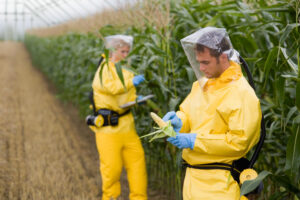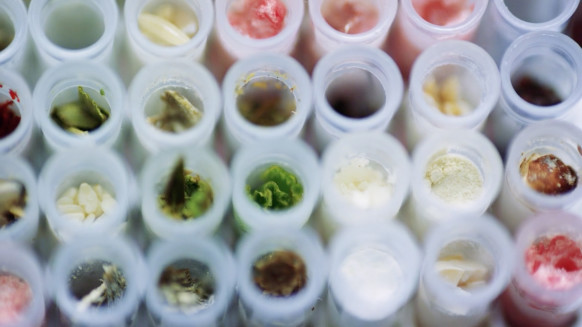Clear Labs, a start-up company that sequences human genomes in clinical trials, has recently raised 6.5 million in a Series A Funding to create a molecular data index that includes allergen and contamination data in hopes to become the “google of food”
“Our aim is really to build this comprehensive database upon which we can make food indexable, searchable and with all the types of genetic analytics you can run on top of that,” Ghorashi said in a recent interview.

For the past two years, Clear Labs has been collecting samples in the United States and analyzing them for genetic collection. (1) The company now holds the worlds largest database of food genetic markers and it wants to use the data, to change how manufacturers manage the food supply.
Unlike other resources that monitor food contamination, Clear Labs aims to index all pre-made foods into their genomic database. Thus, seeking to create a future where food manufacturers can be proactive in food safety rather than reactive to outbreaks and recalls.
IT’S ALL ABOUT CHANGING THE PARADIGM FROM FOOD SAFETY TO FOOD QUALITY — SASAN AMINI
According to the Non GMO Project more than 80% of all packaged foods contain genetically modified ingredients, this putting the food industry in the under the microscope as a growing number of consumers distrust this new “frankenfood”.
A recent study estimates that 93% percent of Americans believe that food labels should be added to all genetically modified food and 57% say that they would not buy GMO food.

The debate now rages in Congress with the passing of a bill this month, that would cancel the requirement of labelling GMO Food Products. If the label war is lost, those who are opposed to the Bill, can look to Clear Labs for an answer.
Clear Labs, was established for food retailers and manufacturers who aim to keep close watch on the safety and integrity of their products and (2) by identifying the species of plants, animals, bacteria, and fungi in a sample, they can suss out the authenticity of an ingredient (whether the fish in those fish sticks is really what you think it is). They can also determine if food is contaminated with microbes, if the product contains allergen or has genetically modified ingredients.
The company itself will not hold an opinion of whether or not the food is “bad or good”, their vision, is a future where you can use your smart phone to scan the bar-code label of a product in the grocery store, to see the molecular data.The co-founders are hoping for a consumer application to be released to the public within 5-7 years.
by LJ Vanier
Sources:
(2) http://www.wired.com/2015/09/company-using-dna-sniff-contaminated-food/

